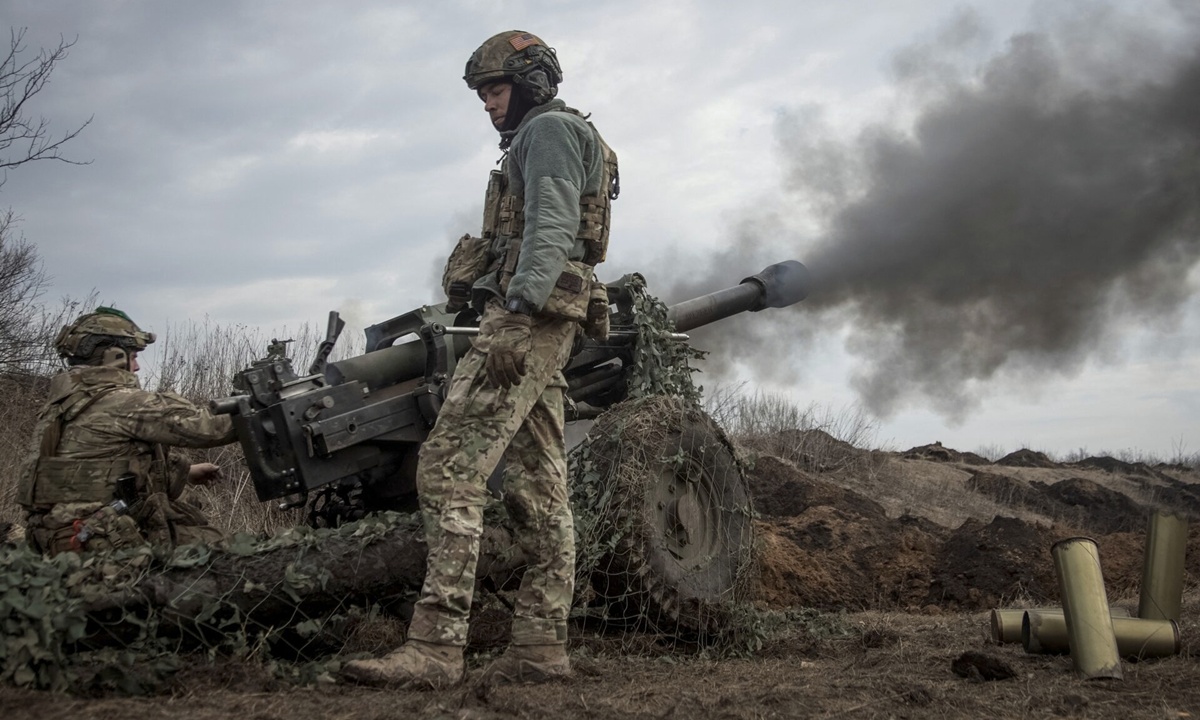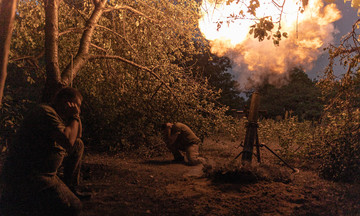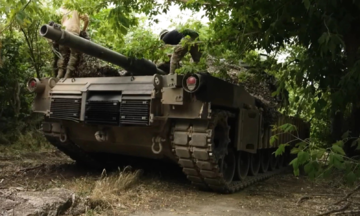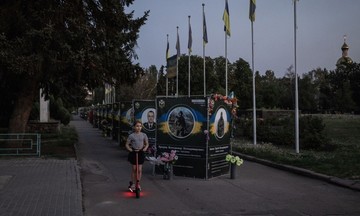A few months ago, Oleh Voroshylovskyi, commander of a Ukrainian unit specializing in countering Russian drone attacks on Kyiv, received a valuable asset from the US: a Browning machine gun capable of hitting targets over 1.5 km away. This weapon not only allowed the unit to target drones at higher altitudes but also symbolized US support for Ukraine in its conflict with Russia.
 |
Ukrainian soldiers fire an M119 howitzer at Russian targets near Bakhmut in 2023. Photo: Reuters |
Ukrainian soldiers fire an M119 howitzer at Russian targets near Bakhmut in 2023. Photo: Reuters
However, after the Trump administration announced the suspension of some arms shipments to Ukraine on 1/7, citing depleted US stockpiles, Voroshylovskyi feels "on edge," uncertain about continued support from Washington. "This will seriously affect combat effectiveness," he said.
The halted shipments were initially approved under the Biden administration. President Trump has yet to approve any new military aid packages for Ukraine during his current term. Washington had previously committed to providing up to 11 billion USD in weapons and equipment this year.
While the Trump administration hasn't specified which weapons are affected, US media reports indicate the suspension includes missiles for the Patriot air defense system, precision artillery shells, and other missiles used by Ukraine for its F-16 fighter jets. Experts view this as a clear sign that the US is seeking to reduce its involvement in the conflict.
"Ukraine is no longer a priority, no longer central to US foreign policy," said Solomiia Bobrovska, a member of the Ukrainian parliament's defense and intelligence committee. "At least Mr. Trump is very upfront about this with Ukrainians."
Ukrainian officials, seemingly caught off guard by the US announcement, are working to connect with their American counterparts for clarification.
The severity of the suspension's impact on Ukraine remains unclear, as Kyiv continues to receive arms from Europe and maintains its own domestic production. However, this comes at a particularly precarious time, with Russia intensifying large-scale attacks aimed at crippling Ukraine's air defenses.
Russia frequently deploys hundreds of drones against Ukraine in a single night, followed by ballistic missile launches that only the Patriot system can intercept.
Reflecting its concern, Ukraine summoned US Deputy Chief of Mission John Ginkel on 2/7 to discuss Washington's "military support and defense cooperation."
The Ukrainian Ministry of Foreign Affairs argues that any delays or suspensions of US support will only embolden Russia to prolong the conflict rather than pursue peace. Ukrainian Member of Parliament Inna Sovsun warned that the US action could cost hundreds of civilian lives.
This marks the second suspension of US military aid to Ukraine since Trump's second-term election. In March, the White House briefly halted aid following a public disagreement between President Trump and Ukrainian President Volodymyr Zelensky.
On 2/7, the Kremlin welcomed the US decision, asserting that it could expedite the end of the fighting. "The fewer weapons sent to Ukraine, the sooner the special military operation will end," said Kremlin spokesperson Dmitry Peskov.
Ukraine currently possesses eight Patriot systems, six of which are operational, primarily defending Kyiv, the main target of Russian air raids. However, according to Bobrovska, missiles are running low, and the aid suspension will significantly complicate efforts to protect the city. "It's a huge problem," she said.
She believes Ukraine can more easily manage without non-missile weaponry, such as artillery shells, due to increased domestic production and supplies from European partners. President Zelensky stated last week that Ukraine's defense industry now meets over 40% of Kyiv's weapons needs.
After the previous US arms suspension in March, analysts estimated that Kyiv could only sustain combat for four to six months. However, the Trump administration lifted the suspension after about a week, and arms shipments resumed.
Long concerned about military aid under the Trump administration, Ukraine has recently shifted its approach, expressing willingness to purchase or lease US weapons instead of receiving them as aid. President Zelensky indicated in April his readiness to buy 10 Patriot systems for approximately 15 billion USD.
At last week's NATO summit, President Trump left open the possibility of sending more Patriots to Ukraine, though it remains unclear whether he referred to entire systems or just missiles, and whether they would be gifted or sold.
To offset the potential decline in US supplies, Ukraine recently launched joint weapons production programs with European allies such as the UK, Denmark, and Norway. Under these initiatives, weapons will be manufactured in those countries or in Ukraine, with allies providing funding and Ukraine contributing technical expertise.
Voroshylovskyi, the anti-drone unit commander near Kyiv, believes Ukraine can withstand this latest US aid suspension, but at a steep cost. "We will find weapons, but it will be harder, and more people will die," he said.
Vu Hoang (AFP, Reuters, AP)












